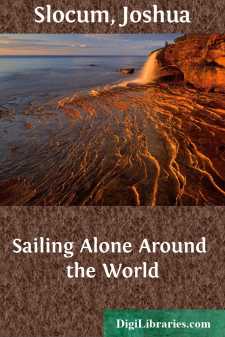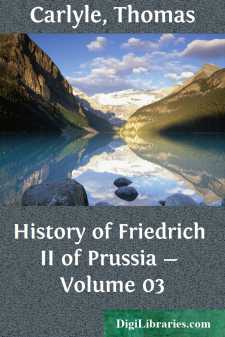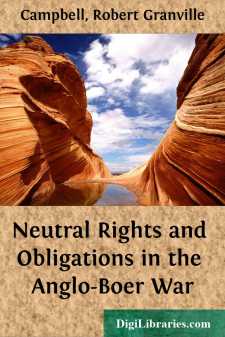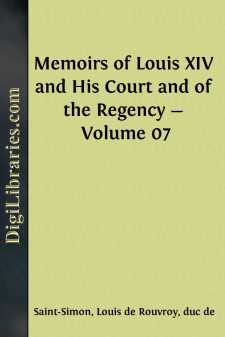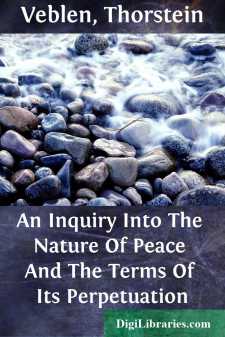History
- Africa 30
- Americas (North Central South West Indies) 50
- Ancient 68
- Asia 58
- Australia & New Zealand 8
- Canada 41
- Caribbean & West Indies 1
- Civilization 20
- Eastern Europe 12
- Europe 310
- Expeditions & Discoveries 60
- General 77
- Historical Geography 1
- Jewish 9
- Latin America 3
- Medieval 8
- Middle East 13
- Military 248
- Revolutionary 8
- Study & Teaching 5
- United States 353
- Western Europe 56
- World 13
History Books
Sort by:
by:
Joshua Slocum
CHAPTER I A blue-nose ancestry with Yankee proclivities—Youthful fondness for the sea—Master of the ship Northern Light—Loss of the Aquidneck—Return home from Brazil in the canoe Liberdade—The gift of a "ship"—The rebuilding of the Spray-Conundrums in regard to finance and calking—The launching of the Spray. In the fair land of Nova Scotia, a maritime province, there is a ridge...
more...
Not many of us remember Otterbourne before the Railroad, the Church, or the Penny Post. It may be pleasant to some of us to try to catch a few recollections before all those who can tell us anything about those times are quite gone. To begin with the first that is known about it, or rather that is guessed. A part of a Roman road has been traced in Otterbourne Park, and near it was found a piece of...
more...
I adopt a course different from that recently pursued by several of my contemporaries; I publish my memoirs while I am still here to answer for what I write. I am not prompted to this by the weariness of inaction, or by any desire to re-open a limited field for old contentions, in place of the grand arena at present closed. I have struggled much and ardently during my life; age and retirement, as far...
more...
by:
Thomas Carlyle
Chapter I. — KURFURST FRIEDRICH I. Burggraf Friedrich, on his first coming to Brandenburg, found but a cool reception as Statthalter. ["Johannistage" (24 June) "1412," he first set foot in Brandenburg, with due escort, in due state; only Statthalter (Viceregent) as yet: Pauli, i. 594, ii. 58; Stenzel, Geschichte des Preussischen Staats (Hamburg, 1830, 1851), i. 167-169.] He came as...
more...
Andrew Jackson March 4, 1833, to March 4, 1837 FELLOW-CITIZENS: The will of the American people, expressed through their unsolicited suffrages, calls me before you to pass through the solemnities preparatory to taking upon myself the duties of President of the United States for another term. For their approbation of my public conduct through a period which has not been without its...
more...
INTRODUCTION. For three reasons, one purely personal (as you will soon see), I am pleased to play even a small part in the reprinting of D. Augustus Dickert's The History of Kershaw's Brigade ... an undertaking in my judgment long, long, overdue. First, it is a very rare and valuable book. Privately published by Dickert's friend and neighbor, Elbert H. Aull, owner-editor of the...
more...
CHAPTER I. THE NEUTRALITY OF THE UNITED STATES. The neutral attitude assumed by the United States was maintained throughout the war. With reference to any official recognition of the Transvaal as an independent State apart from the immediate purposes of war no action was taken. This view of the situation in South Africa was entirely consistent with the requirements of international law, and, in...
more...
The death of D'Avaux, who had formerly been our ambassador in Holland, occurred in the early part of this year (1709). D'Avaux was one of the first to hear of the project of William of Orange upon England, when that project was still only in embryo, and kept profoundly secret. He apprised the King (Louis XIV.) of it, but was laughed at. Barillon, then our ambassador in England, was listened...
more...
THE ACCESSION OF CHARLES X Thursday, the 16th of September, 1824, at the moment when Louis XVIII. was breathing his last in his chamber of the Chateau des Tuileries, the courtiers were gathered in the Gallery of Diana. It was four o'clock in the morning. The Duke and the Duchess of Angouleme, the Duchess of Berry, the Duke and the Duchess of Orleans, the Bishop of Hermopolis, and the physicians...
more...
by:
Thorstein Veblen
CHAPTER I Introductory: On the State and its Relation to War and Peace To many thoughtful men ripe in worldly wisdom it is known of a verity that war belongs indefeasibly in the Order of Nature. Contention, with manslaughter, is indispensable in human intercourse, at the same time that it conduces to the increase and diffusion of the manly virtues. So likewise, the unspoiled youth of the race, in the...
more...


